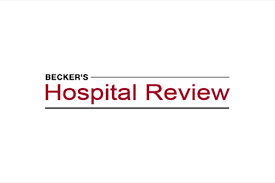
Editor's Note When it comes to the 2024 presidential election, “Neither candidate addresses a return to the fundamental tenet of healthcare: the patient-physician relationship,” reads the closing line of an “election guide” from Richard Menger MD MPA. In the preceding paragraph, Menger also argues that both candidates also neglect issues…

Editor's Note A Senate report reveals that Medicare Advantage insurers are increasingly prioritizing profits over patient care by ramping up the use of prior authorization to deny necessary services, particularly post-acute care, for older adults, Becker’s Hospital Review reported October 17. In May 2023, the Senate Permanent Subcommittee on Investigations…

Editor's Note CMS has taken the next steps in making prescription drugs more affordable for Medicare recipients, according to an October 9 report from The US Department of Health and Human Services (HHS). The proposed Medicare $2 Drug List Model, developed in line with President Biden’s Executive Order 14087, aims…

Editor's Note If global healthcare were a country, it would rank as the fifth-largest emitter of greenhouse gases. So says Dr. Sofya Asfaw, a trauma and critical care surgeon at Cleveland Clinic, in a JAMA Network video on “greening” the OR. Published July 17, the short film features experts like…

Editor's Note The October 1 vice presidential debate showcased sharp divisions between the candidates on healthcare policy, focusing primarily on the future of the Affordable Care Act (ACA) and reproductive rights. A summary published October 2 in Stat details how Sen. JD Vance (R-Ohio) proposed changes that could allow insurers…

Editor's Note Starting October 1, US hospitals participating in Medicare's Inpatient Quality Reporting Program will need to report adherence to 25 patient safety best practices, as mandated by the Centers for Medicare & Medicaid Services (CMS). According to a September 4 report from the Association of Health Care Journalists, the…

Editor's Note Lost organs, widespread fraud, and live donors mistakenly presumed deceased are among the alarming issues with the US organ transplant system detailed in a recent Congressional hearing, MedPage Today reported September 11. As part of the House Energy & Commerce Oversight and Investigations Subcommittee, the hearing aimed to…

Editor's Note The healthcare portion of the September 10 debate between former President Donald Trump and Vice President Kamala Harris focused on two issues: abortion and the Affordable Care Act (ACA). Becker’s Hospital Review published key takeaways from the exchange September 11. According to the article, Trump reiterated that the…

There is no shortage of advice, opinions, and proposed solutions when it comes to staff shortages, but the issue continues to plague healthcare systems nonetheless. For a couple of years now, speakers at the OR Business Management Conference and OR Manager Conference have been asking attendees, “Who still struggles to…

Editor's Note A bill in California that aims to increase oversight of private equity healthcare investments is receiving support from consumer advocates, labor unions, and the California Medical Association and opposition from hospitals worried about losing funding sources, the Los Angeles Times reported August 9. Sponsored by Attorney General Rob…